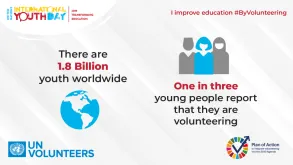Investing in education and youth volunteers creates a foundation for a better future for everyone. Globally, we are part of the largest generation of youth in human history. There are 1.8 billion young people worldwide, a third of them are volunteering. Youth literacy has in general increased in the last 65 years (from 42 percent in 1960 to 86 percent in 2015). Despite this improvement, there are still substantial challenges ahead. Engaging youth and making education relevant, equitable and inclusive is a key factor for the achievement of 2030 agenda.
By 2030, the sustainable goals (SDG4) aims to ensure that all girls and boys complete free, equitable and quality primary and secondary education leading to relevant and effective learning outcomes. Nowadays, young women do not have the same access to education and training as their male peers. According to UNICEF, globally, 264 million children and adolescents do not have the opportunity to enter or complete school.
Only 10 percent of people complete upper secondary education in low-income countries. At the same time, in the developing countries where 90 percent of the population are youth, accessing basic education is still a challenge. In Niger, for instance, the literacy rate of youth (15-24 years) is only 36.5 percent.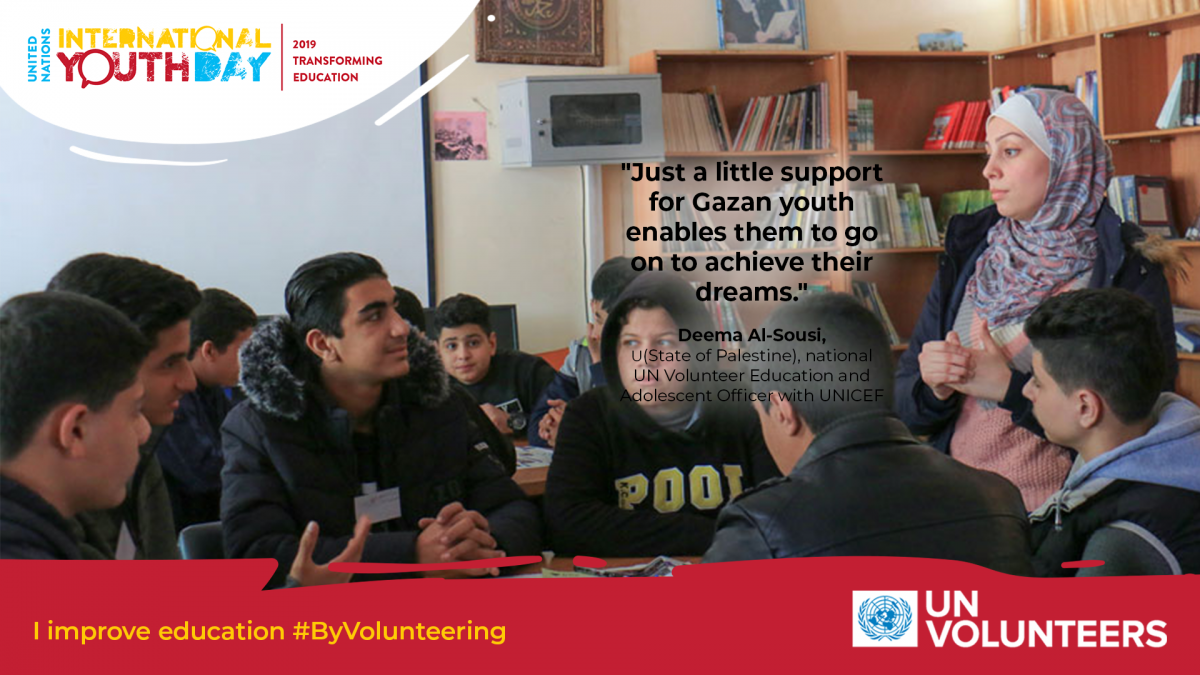
Across the globe, young people are standing up for the right of everyone to access free, inclusive and good quality education and training. These efforts need support from governments, institutions and societies.
One example of these voices is Lchumar Sylivia Lorot. As SDG4 advocate, she promotes adolescent education and development. Through her assignment in Uganda, she conducted mentorship in schools to promote life skills. She also worked to educate and engage young people through listening to the issues that undermine their access to education to advocate for it.
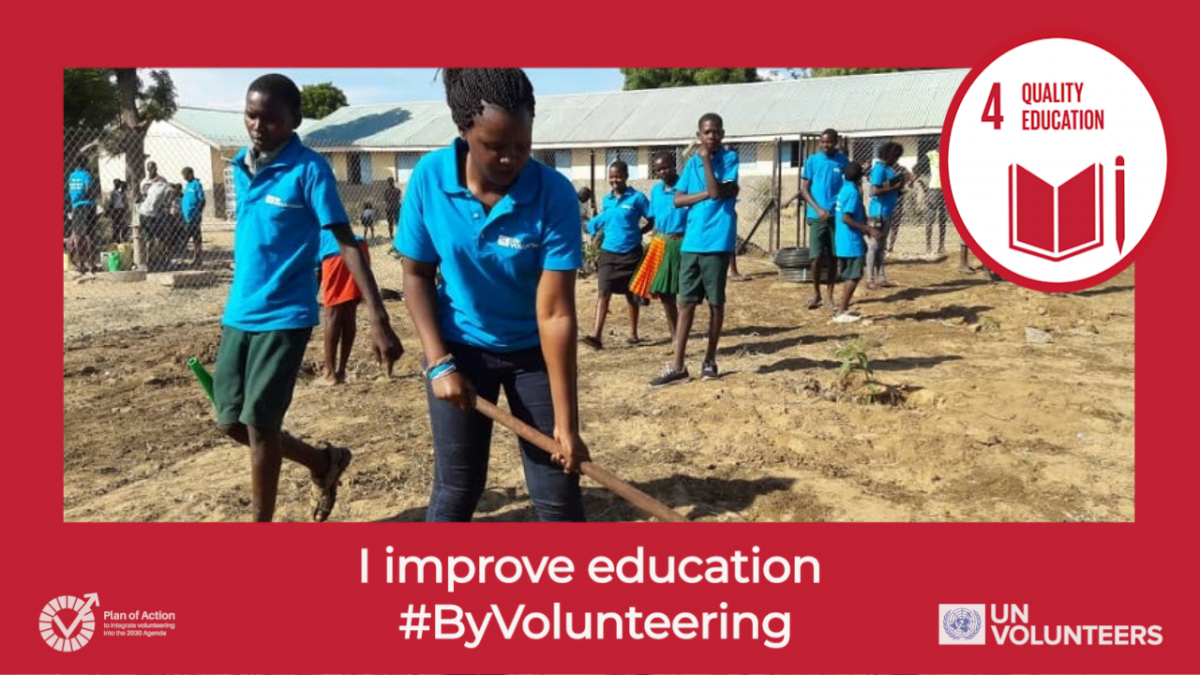
As a UN Volunteer, I advocate for better learning opportunities and outcomes, prioritizing education and youth lead initiatives to promote adolescent development. Chumar Sylivia Lorot, UN Youth Advocate for education with UNICEF, Uganda.
Number of countries are recognizing volunteering to be part of the solution of illiteracy. They highlighted in their volunteering national review (VNR) that volunteering plays an important role to achieve SDG4.
In Cambodia, 52.2% of the total population are under 25 years, which is the highest in the South East Asia region. It was mentioned in its VNR that volunteering is promoting inclusive education and youth engagement.
Volunteers in Oman play a major role in the empowerment of women through participation in the fields of various training. They facilitate women’s access to employment opportunities, education and awareness-raising for women and society and self-empowerment.
Ghanaian government work to promote skills development and entrepreneurship in its plans to encourage science, technical, vocational and entrepreneurship education at all levels of education. Ghana also mentioned in its VNR that there are also a number of international volunteering groups actively working on a wide range of initiatives geared towards achieving the SDGs. Most of the volunteering activities in Ghana are in the areas of teaching, construction, healthcare, conservation and skills development, mostly in deprived communities.
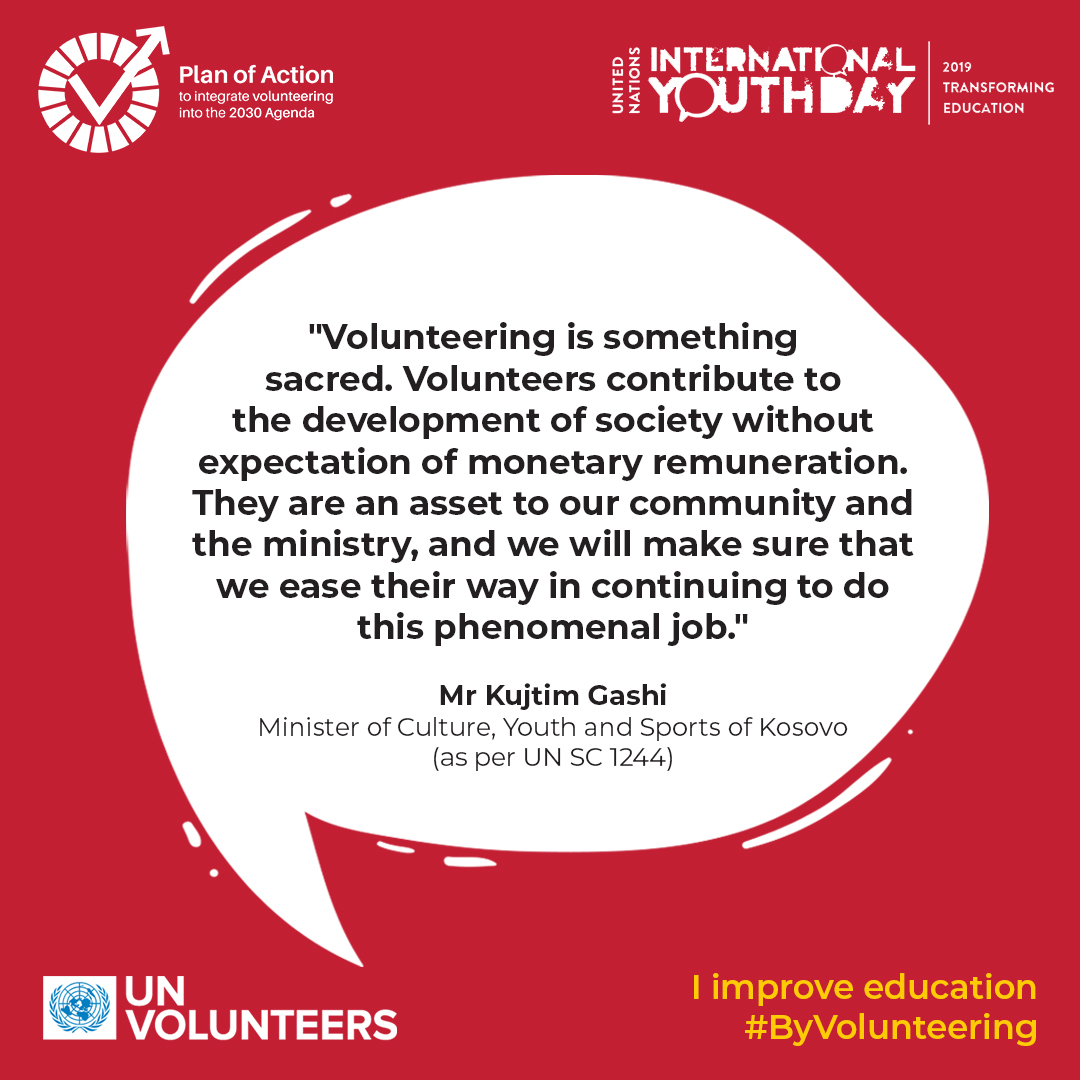
Volunteers have the ability to reach, support and educate young people in a youth-friendly, innovative way. For example, the Y-PEER Network is active in 52 countries throughout the world. Its unique approach consists of alternative methods of education, such as theater-based techniques, role games, and simulations.
Noor Hamayel, UN youth volunteer and the coordinator of Y-PEER Network, supported and educated young people in the State of Palestine. Last year, she and her colleagues reached 5,000 young people in schools and universities, 65 percent of whom were from vulnerable communities.

From the standpoint of equal and inclusive education for women in new technologies, IT Girls project aimed to make girls and women more visible in the world of Information and Communications Technology (ICT). This project was driven from a partnership between the UN Children’s Fund (UNICEF), UN Development Programme (UNDP), and UN Women in Bosnia and Herzegovina.
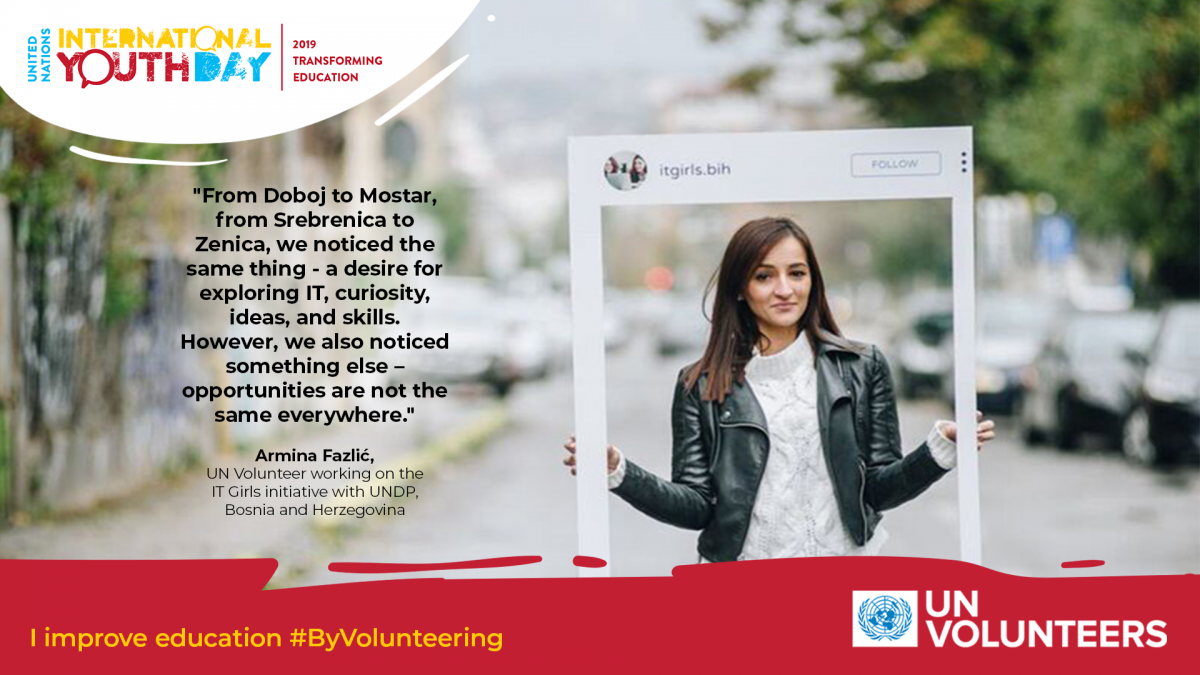
With the new technological revolution, education needs to be transformed in a way that young people are up to date and are able to cope with the world new changes. UNESCO’s International Institute for Capacity Building in Africa (IICBA) in Ethiopia worked to develop educational solutions based on ICT strategies from the grassroots level. Mercela Krejci (Czech Republic) was supporting the project and had used her experience in education in her work.

UN Volunteer continues its effort to engage youth to support programmes, build their skills to achieve the 2030 agenda. In 2018, UNV deployed and mobilized 1,773 young volunteers aged under 29 years (1174 females and 599 male). From the total UN volunteers, 10 percent of people are supporting education.

